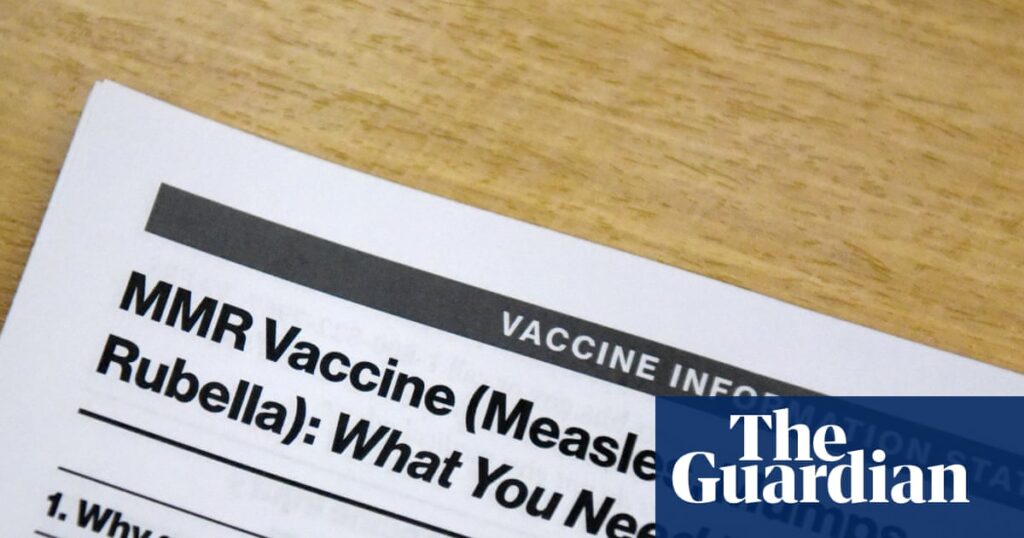The increase in measles cases among young people in the UK, which has already led to one death in Liverpool, is worrying and tragic (Parents urged to get children vaccinated after measles death in Liverpool, 13 July). Vaccines alone don’t save lives, vaccination does. And although we have safe and effective vaccines available in the UK, uptake is too low to unlock the large societal benefits that vaccination can bring.
Immunisation uptake across adult, adolescent and childhood vaccines has decreased in the UK and internationally for almost every vaccine (UK worst in G7 for MMR jab rates, as 30m children worldwide not fully immunised, 15 July). This should raise major alarms for global health. There is misinformation and vaccine hesitancy, and we face a lack of knowledge regarding the importance of vaccines.
We also need to deliver vaccines beyond standard healthcare settings. The UK’s school-based human papillomavirus (HPV) vaccine programme for adolescents has been successful in increasing uptake, and similar programmes for childhood and adult vaccines in equivalent settings could be trialled. The government’s 10‑year NHS plan proposes a new health visitor model to encourage vaccinations in communities. This is a commendable step towards increasing vaccination uptake. It could also help address broader issues around misinformation, hesitancy and inequalities in uptake.
This, along with taking a long-term view to prevention, are critical components of revitalising uptake and protecting public health.
Simon Brassel
Senior principal economist, Office of Health Economics
It is heartbreaking that some children are seriously sick and a child has died from measles. Vaccines are the most successful and effective public health measures against infectious diseases. Measles is a highly contagious acute viral respiratory infection that is a primary cause of morbidity and mortality among infants and children under five, especially those with a compromised immune system or malnourished.
Measles can lead to serious complications such as pneumonia, encephalitis, dehydration, ear infections, diarrhoea and irreversible vision loss. More than 90% of susceptible individuals around an infected person can catch the virus.
Vaccine hesitancy is one of the top 10 global health threats, on par with climate change, HIV/Aids and lethal pathogens. It’s time to raise awareness about the importance of vaccinations in combating infectious diseases, saving lives and protecting children, families and society.
Dr Munjed Farid Al Qutob
Willesden Green, London
Melanie Pilcher of the Early Years Alliance says of children in nurseries who are not vaccinated against measles: “It wouldn’t be right to turn children away because it is a parental choice at the end of the day, and we have to respect that” (Nurseries in England bring in Covid-style protocols as measles cases rise, 19 July). No, you do not have to respect that choice because it is a shortsighted, dangerous and potentially deadly choice. Dangerous to the parents’ own child and to the children around that child. In response, public health authorities must step up neighbourhood vaccination clinics, bringing the vaccine to families rather than demanding that families come to clinics.
Matthew K Belmonte
Sheffield


